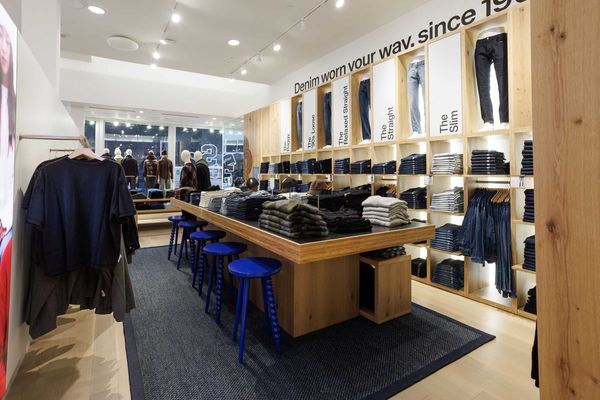Americans have made their will known at the polls and the box office, and the message is clear: Our military presence in the Middle East is only slightly less popular than the movies inspired by it. The Hurt Locker may not change that sentiment, which felled recent offerings like Ridley Scott’s underrated Body of Lies and the equally overlooked Rendition, but that takes nothing away from Kathryn Bigelow’s most gripping thriller to date.
As emotionally involving an action movie as you’re likely to find this year (much less this summer), The Hurt Locker is also a tense, forceful meditation on the addictive nature of combat. Some soldiers hope to make the quickest exit possible, with good reason. Staff Sgt. William James (Jeremy Renner, of 28 Weeks Later), for whom defusing bombs is as much his compulsion as his specialty, is not one of them.
James, who arrives in Baghdad shortly after another bomb expert is killed in action, isn’t made for first impressions. He’s a brilliant technician – indeed, a man defined and consumed by his work, which is flawless – but he’s too cocky, reckless and freewheeling to fit in with the rest of his unit. Sgt. J. T. Sanborn (Anthony Mackie, of Notorious) is immediately put off by his arrogance. Eldridge (Brian Geraghty), the team specialist already traumatized by the death of his colleague, doesn’t know what to make of him, but recognizes James’ cavalier approach as a potential liability.
Early on, Bigelow, who previously directed testosterone-fueled fantasies like Point Break and K-19: The Widowmaker, establishes a rhythm to the days James, Sanborn and Eldridge spend together. On some level, they’re tedious – every morning brings a new bomb to defuse, and each mission is a rough approximation of the last. What makes them impossibly tense – and the movie endlessly fascinating – are the stakes.
James and his fellow soldiers live in the kill zone. For Eldridge, who seeks counseling for his anxiety and lives in perpetual fear of death, it’s a recurring nightmare; he wants to wake up and go home. Sanborn, a firm disciplinarian who masks his insecurities well enough to lead, counts the days left in his tour of duty and tries to keep a stern poker face in the meantime. But James? He actually enjoys the work and the adrenaline rush that comes with it.
The Hurt Locker opens with a quote from former New York Times war correspondent Chris Hedges: “War is a drug.” James is an addict. Like the prisoners in Shawshank Redemption who are so accustomed to life on the inside that the alternative seems unthinkable, James is conditioned for combat and not much else. At home with his on-again, off-again girlfriend (Lost’s Evangeline Lilly), he can’t decide which cereal to buy for their son. In Iraq, he is in control, at ease, wholly in his element.
That’s not to say James is desensitized. Renner, who impressed with his supporting turn in 2007’s The Assassination of Jesse James by the Coward Robert Ford, delivers a richly layered performance here. He can be cocksure, callous, even cruel, but there is tenderness in him; he can’t numb himself to his surroundings any more than Eldridge and Sanborn, whose reluctant friendship he earns in the heat of the movie’s tensest shootout. Renner throws himself into the role with a passion that should be remembered during awards season.
Bigelow, an adrenaline junkie herself, perhaps felt a special kinship with James: She has spent her career thrusting characters into mortal peril and watching them struggle their way out. In Blue Steel (1990), she turned Jamie Lee Curtis into a Dirty Harry-style avenger with a badge. In Point Break (1991), she explored the hyper-masculinity that bound Patrick Swayze, a surf-loving bank robber, and Keanu Reeves, the FBI agent assigned to take him down. Both movies played like cartoons, but The Hurt Locker, which is leaner and more economical, suggests the work of a more mature filmmaker.
Rather than concentrating on horrific explosions or a deafening heavy-metal soundtrack, Bigelow keeps us on edge with the mere threat of violence; when hostilities boil over, they are presented with blunt, unforced realism and never as thrill rides. (As several critics have already observed, this is the anti-Transformers.) Whether that will be enough to entice audiences that have roundly rejected the war in Iraq is anybody’s guess, but The Hurt Locker deserves to be seen.
The Hurt Locker opens on Friday, July 10, at the Embarcadero Center Cinemas and the Sundance Kabuki Cinemas. For showtimes, click here.




















